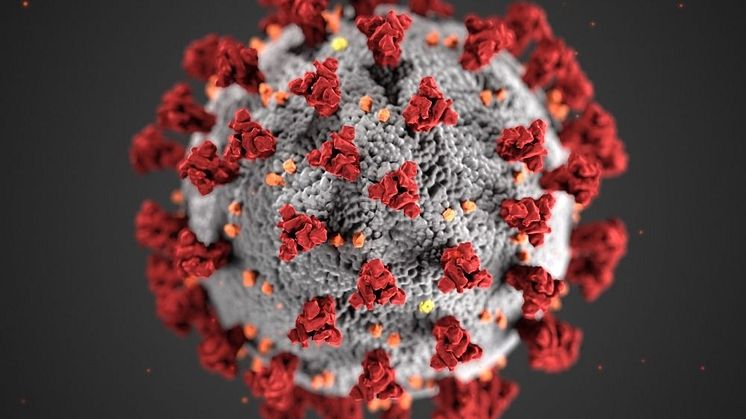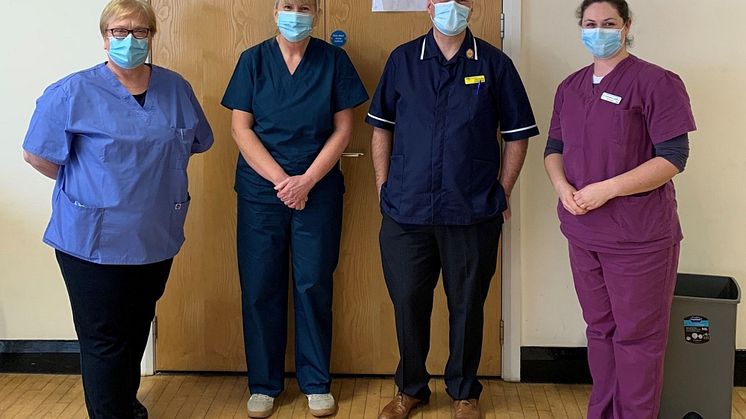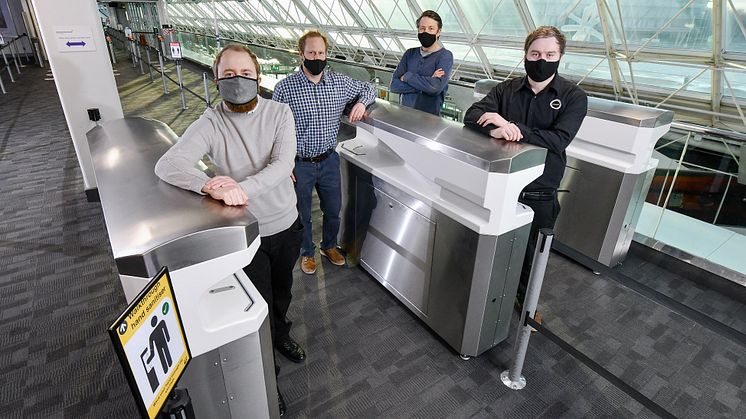
Press release -
INNOVATIVE ANTIVIRAL COATING TO REDUCE SPREAD OF COVID-19
Academics at Northumbria University, Newcastle, have been backed by the Government’s Defence and Security Accelerator (DASA) to develop an antiviral coating suitable for use on everyday surfaces.
DASA, part of the Ministry of Defence, has commissioned a research team from Northumbria to develop a new type of multifunctional antiviral coating which could form part of the country’s biodefence - crucial to combatting public health crises such as the ongoing COVID-19 pandemic.
In partnership with Defence Science and Technology Laboratory (Dstl), academics from the University’s Department of Applied Sciences are working to create a unique “superhydrophobic” – low friction – coating that enables surfaces to be functionalised in a way that destroys viruses whilst maintaining robust and easy-to-clean properties.
While antiviral coatings are not a new concept, existing approaches can release undesirable chemical compounds into the environment, are not long lasting or are difficult to clean and maintain.
This novel coating aims to provide a solution to the drawbacks of current formulas.
Funding from DASA will enable the research team to explore wide-ranging applications, to understand whether the coating is universally robust on an array of surfaces and materials. It is hoped that in the future it could be used on high-contact surfaces such as handrails on public transport, hospital trolleys or shop till-points, as well as domestically - on door handles or bathroom taps, for example.
Such a scientific development is a vital biodefence tool that could help bring down the COVID-19 ‘R’ rate, while allowing more scope for ‘normal’ life to continue.
Dr Matt Unthank, project lead and Associate Professor in Polymer Chemistry, said: “Having the ability and insight to design multifunctional coating systems that can create long lasting defence against viruses, whilst also being compatible with everyday life, is challenging yet important.
“It’s not just about destroying viruses in the laboratory. New coating systems and surface treatments need to be robustness, easy to clean, universal in their application, safe and low cost. Our research seeks to explore these interdependencies and to develop new antiviral coating systems for the current and future pandemics.”
Routes to antiviral surfaces
Disinfecting methods such as chemical, bleach or alcohol-based products actively destroy, or deactivate, microorganisms such as bacteria and viruses on contact. However, this approach requires constant retreatment of the surfaces with disinfecting agent which can be labour intensive and impractical.
An alternative approach is to create a permanent or semi-permanent surface that destroys virus particles on contact, known as an ‘antiviral’ surface. These fall into two major categories:
1) those that slowly leach virucidal chemicals from a coated surface into the environment resulting in an antiviral effect, known as ‘controlled release’ biocidal or virucidal coatings.
2) those that have a surface that is permanently capable of destroying microorganisms, such as coronavirus and are known as ‘contact biocidal’ or ‘contact virucidal’ coating
Ian Shortman, technical partner and Senior Scientist at Dstl, said: “This work aims to develop transparent coatings which are both biocidal and water repellent. The approaches being adopted could provide a wide range of benefits, and be easily applied to a range of surfaces such as textiles and plastics.”
Andrew Caldwell, Head of DASA, said: “Congratulations to Northumbria University, we look forward to seeing the progress of this important and exciting project.
“This work is a great example of how DASA working with others finds, funds and helps accelerate the development of important innovations that help keep us all safe.”
Dr Matt Unthank and his team are focussing on developing new multifunctional contact biocidal and virucidal coatings, which are safe, do not release chemicals to the environment and are user friendly and universal in their application.
One disadvantage of all biocidal and virucidal coatings is that surface contamination by dust, debris and dirt can disable its antiviral capabilities overtime. An ideal coating system would be both potent in its antimicrobial properties but also easy-clean or even self-cleaning in nature. This concept is the inspiration for the low friction, or ‘superhydrophobic’ qualities of the coatings under development by researchers at Northumbria University - a vision that sets it apart from existing antiviral coating technologies.
-ENDS-
Notes to editors:
About Northumbria University
Northumbria University, Newcastle is a research-rich, business-focused, professional university with a global reputation for academic excellence.
Northumbria is one of the largest universities in the UK with more than 30,000 students from over 130 countries
Defence and Security Accelerator (DASA)
The Defence and Security Accelerator (DASA) finds and funds exploitable innovation to support UK defence and security quickly and effectively, and support UK prosperity. Our vision is for the UK to maintain its strategic advantage over its adversaries through the most innovative defence and security capabilities in the world. DASA is a cross-Government organisation, launched in December 2016 by the Secretary of State for Defence.
Defence Science and Technology Laboratory (Dstl)
Dstl is an executive agency of the Ministry of Defence providing world class expertise and delivering cutting-edge science and technology for the benefit of the nation and allies. Dstl supplies specialist services to MOD and wider government, working collaboratively with external partners in industry and academia worldwide, providing expert research, specialist advice and invaluable operational support.
Topics
Categories
Northumbria is a research-rich, business-focused, professional university with a global reputation for academic excellence. Find out more about us at www.northumbria.ac.uk --- Please contact our Media and Communications team at media.communications@northumbria.ac.uk with any media enquiries or interview requests ---












